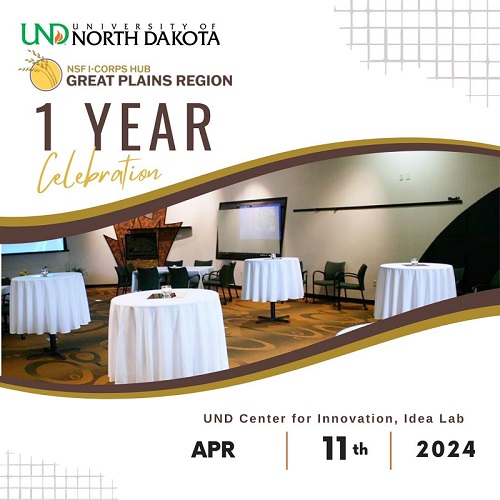Pre-proposals due Dec. 10 for NSF scholarships in STEM
The National Science Foundation has issued the following program announcement which will allow UND to submit only one proposal from each college that is STEM-eligible. If you are interested in submitting a proposal to NSF for the program, please let Grants & Contracts know as soon as possible by submitting a pre-proposal by December 10, 2017 to ashley.melicher@research.und.edu.
https://www.nsf.gov/pubs/2017/nsf17527/nsf17527.htm
Program Title: NSF Scholarships in Science, Technology, Engineering, and Mathematics Program (S-STEM)
Synopsis of Program:
A well-educated science, technology, engineering, and mathematics (STEM) workforce is a significant contributor to maintaining the competitiveness of the U.S. in the global economy. The National Science Foundation (NSF) Scholarships in Science, Technology, Engineering, and Mathematics (SSTEM) program addresses the need for a high quality STEM workforce in STEM disciplines supported by the program and for the increased success of low-income academically talented students with demonstrated financial need who are pursuing associate, baccalaureate, or graduate degrees in science, technology, engineering, and mathematics (STEM) [6], [16].
Recognizing that financial aid alone cannot increase retention and graduation in STEM, the program:
Provides awards to Institutions of Higher Education (IHEs) to fund scholarships and to advance the adaptation, implementation, and study of effective evidence-based curricular and co-curricular activities that support recruitment, retention, transfer (if appropriate), student success, academic/career pathways, and graduation in STEM. The S-STEM program encourages collaborations among different types of partners: Partnerships among different types of institutions; collaborations of STEM faculty and institutional, educational, and social science researchers; and partnerships among institutions of higher education and local business and industry, if appropriate.
The program seeks: 1) to increase the number of low-income academically talented students with demonstrated financial need obtaining degrees in STEM and entering the workforce or graduate programs in STEM; 2) to improve the education of future scientists, engineers, and technicians, with a focus on academically talented low-income students; and 3) to generate knowledge to advance understanding of how factors or evidence-based curricular and co-curricular activities affect the success, retention, transfer, academic/career pathways, and graduation in STEM of low-income students. The STEM disciplines supported by the S-STEM program include:
Biological sciences (except medicine and other clinical fields); Physical sciences (including physics, chemistry, astronomy, and materials science); Mathematical sciences; Computer and information sciences; Geosciences; Engineering; and Technology areas associated with the preceding disciplines (for example, biotechnology, chemical technology, engineering technology, information technology, etc.) The S-STEM program particularly encourages proposals from 2-year institutions, Minority Serving Institutions (MSIs), Historically Black Colleges and Universities (HBCUs), Hispanic Serving Institutions (HSIs), tribal colleges, and urban public and rural institutions.
